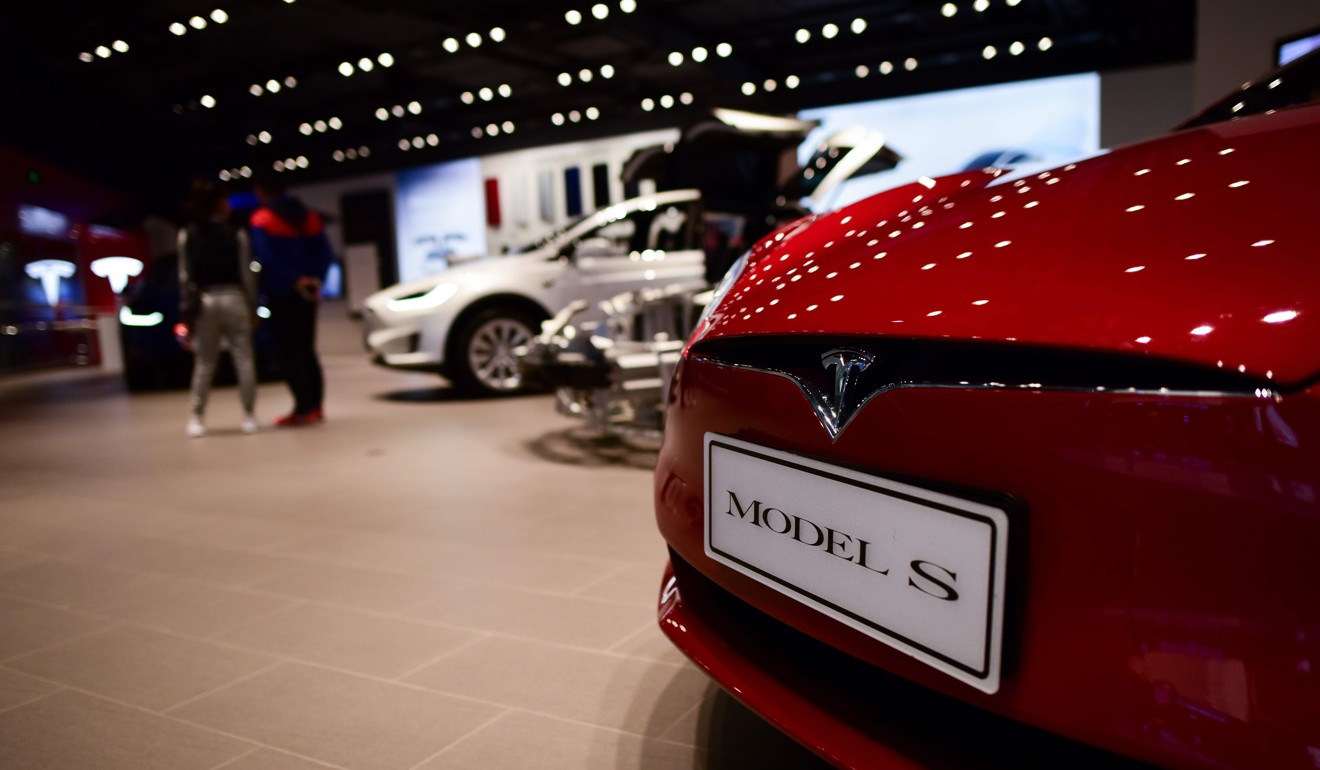
Xi Jinping puts China’s car industry in top gear with plans to raise foreign investment cap, lower import tariffs
Tesla expected to be top beneficiary of reforms announced by Chinese president
Global carmakers received a double dose of good news from China’s President Xi Jinping on Tuesday: a reduction in import tariffs and a raised investment cap with regards to mainland-based factories.
President Xi makes his case for globalisation, free trade at Asia's Davos
Xi said car import tariffs would be slashed significantly as China sincerely hopes to spur imports.
The remarks by the Chinese president, viewed as opening the door to potential negotiations with the United States on a range of trade disputes, raise the hopes for wholly owned plants by Tesla and other foreign brands, including General Motors, Ford and Volkswagen, which are only allowed to manufacture their vehicles in China through partnerships with local carmakers at present.
The Chinese president did not provide details on how the investment cap would be raised and to what extent the 25 per cent import tariffs on vehicles would be lowered, but Elon Musk, the chief executive of Tesla, the biggest-selling electric carmaker in the US, reacted quickly to the positive remarks.
“This is a very important action by China,” Musk said in a Twitter post. “Avoiding a trade war will benefit all countries.”
This is a very important action by China. Avoiding a trade war will benefit all countries
In November, Musk said Tesla was three years away from making cars on the mainland. But the ownership structure has proven to be a stumbling block, with Chinese authorities insisting that the plant be set up through a joint venture with local partners, while Musk wanted it to be fully owned by Tesla, according to Bloomberg.
The announcement by Xi has paved a way for the Shanghai government to bring Tesla back to the negotiating table, but it remains to be seen whether any progress will be made in the near future, according to a local government official who spoke on condition of anonymity.
Tesla would not comment on whether further talks on a mainland-based factory will resume soon.
Wang Sheng, an analyst with Shenwan Hongyuan Securities, said the president’s remarks at the Boao Forum represented a substantial step forward in encouraging majority ownership by foreign car brands in China.
In November, China’s Ministry of Foreign Affairs said the country would attempt to raise the limit on ownership by foreign investors in the new-energy vehicle sector from the current 50 per cent, allowing international carmakers to take a controlling stake or have full ownership of their mainland operations.
But it said the potential liberalisation will take effect only in China’s 11 free-trade zones.
It is possible that measures announced today could help relieve global trade tensions
Since Xi did not mention that the relaxed foreign investment cap will be restricted to these zones, “the openness [of the economy] is higher than what the market had expected,” said Wang. “In the long term, reduced import tariffs on vehicles, particularly these luxury models, will force the domestic auto industry to upgrade its technologies.”
Beijing has been keeping a tight grip on foreign ownership in the car industry to protect local players, albeit with growing calls from business groups to loosen the requirements. Locally produced cars under foreign brands dominate China’s car market, the world’s largest.
The mainland imported 17,000 Tesla vehicles in 2017, a jump of 51.6 per cent from a year earlier, according to the China Automobile Dealers Association.

“It is possible that measures announced today could help relieve global trade tensions,” said Zhu Chaoping, a strategist at JPMorgan Asset Management. “It is also noteworthy that Xi set a timeline to finish some key reforms this year, suggesting the government might accelerate the reforms.”
General Motors said on Tuesday its growth in China was a result of working with its joint venture partners, suggesting that it had no immediate plan to set up a wholly owned plant any time soon.
“We will continue to work with our partners to provide high-quality products and services to consumers,” the company said.
Mats Harborn, president of the European Union Chamber of Commerce in China, said the business lobby group “was still awaiting concrete reform measures and implementation timelines” after Xi’s speech.

